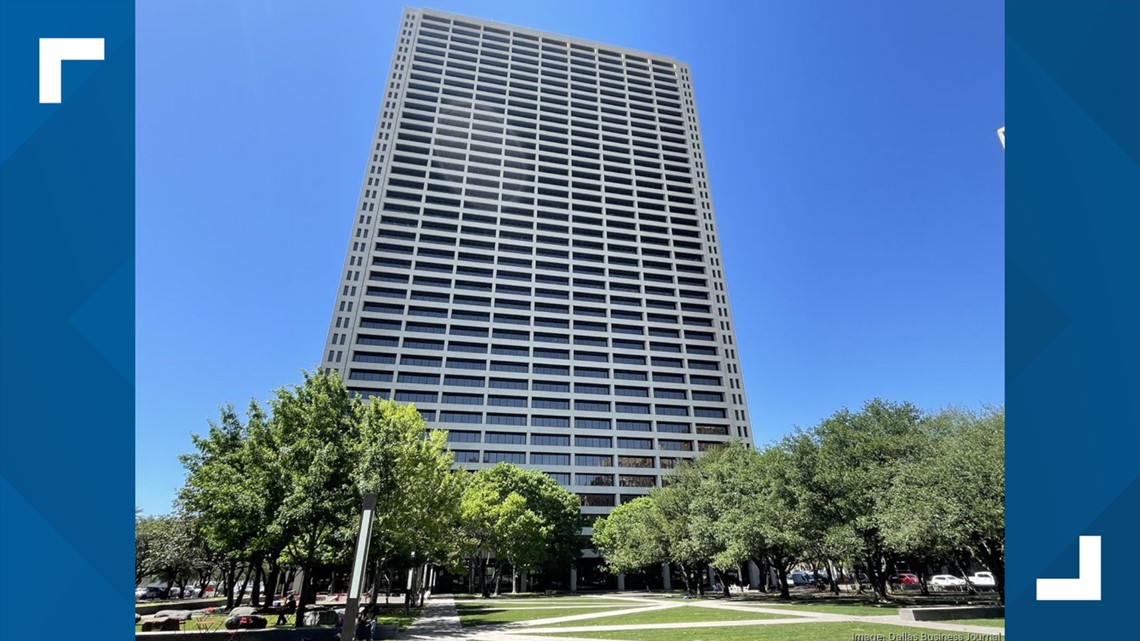Owner of Fort Worth's tallest tower feuds with bank, contractors over finances
Contractors say they haven't been paid for renovations at Burnett Plaza; New York-based landlord alleges bank is trying to wrestle away marquee downtown property Contractors claim they haven't been paid for renovations at Burnett Plaza in downtown Fort Worth, Texas, and New York-based Opal Holdings LLC, the owner of the 40-story tower. Since May 2023, contractors have filed 10 mechanic's liens totalling more than $1.6 million against Opal, which has also been released from five additional mechanic’s liens totaling over $168,000. Tarrant Construction, JLL Group Inc., and Larry Short & Associates LLC have also filed lawsuits claiming more over $1 million in damages. The allegations reflect the ongoing struggles across the country over older office space. Opal bought Burnett Plaza for $137.5 million in 2021.

Published : 4 weeks ago by Seth Bodine (Dallas Business Journal) in Business
Contractors say they haven't been paid for renovations at Burnett Plaza; New York-based landlord alleges bank is trying to wrestle away marquee downtown property
Since May 2023, contractors have filed 10 mechanic's liens totaling more than $1.6 million against an entity connected to New York-based Opal Holdings LLC, the owner of the 40-story tower on Cherry Street in downtown Fort Worth, according to Tarrant County records. The landlord has also been released from an additional five mechanic’s liens totaling more than $168,000.
Such liens are a way for contractors and subcontractors to try to force payment for construc ion work. They typically must be resolved before the owner can sell a building or acquire a clean title.
Meanwhile, Tarrant Construction, JLL Group Inc. and Larry Short & Associates LLC, another contractor, have also filed lawsuits against Opal, the company it formed to manage Burnett Plaza and Shaya Prager, a founding member of the firm. Combined, those lawsuits claim more than $1.6 million in damages.
The allegations against Opal at Burnett Plaza exemplify the real estate challenges felt across the country, especially when it comes to older office space. Numerous buildings across Dallas-Fort Worth have fallen into financial trouble; some have even been foreclose upon.
Opal bought Burnett Plaza for $137.5 million in 2021. The building, completed in 1983, encompasses more than 1 million square feet. Tenants include General Motors Financial Co. Inc., Kimley-Horn and Associates Inc., Huckabee Inc. and Freese and Nichols Inc.
Opal and a related entity, Burnett Cherry Street LLC, claim Pinnacle refused to allow payment to Tarrant Construction for tenant improvements from a reserve account used for covering maintenance costs. Pinnacle did not consider tenant improvements to be maintenance costs, according to the suit.
During the pandemic, the company went on a buying spree of suburban office spaces, borrowing and investing billions into office real estate other investors shied away from, lawyers representing Tarrant Construction noted in the company's lawsuit against the landlord.
The Real Deal reported in August 2022 that Opal had dropped $2 billion on office buildings — the part of the market most upended by the pandemic, with many companies rethinking their workplace needs. Opal closed deals even as the cost to borrow surged amid interest rate hikes prompted by the Federal Reserve.
An entity tied to Opal has been sued by Minnesota credit union Wings Financial, which seeks to foreclose a portion of the largest office park in the Twin Cities metro, according to an April 1 report by Minneapolis/St. Paul Business Journal, a sister publication of DBJ. Wings Financial claims Opal defaulted on a $40.3 million mortgage.
Steve Triolet, senior vice president of research for Partners Real Estate, said Burnett Plaza’s vacancy rate sits at 26.5%, compared with 11.5% for Fort Worth's downtown central business district. He said Burnett Plaza's high concentration of large, publicly traded companies is partly to blame, as many of these businesses went on the defensive during the pandemic and shrunk their real estate footprints.
The largest tenant in the building is GM Financial, which leases more than 270,000 square feet across several floors. In 2020, civil engineering firm Freese and Nichols announced plans to take 72,000 square feet of space inside the building. After delays, the firm did move in, but took less space than initially expected — one floor, or 24,900 square feet.
